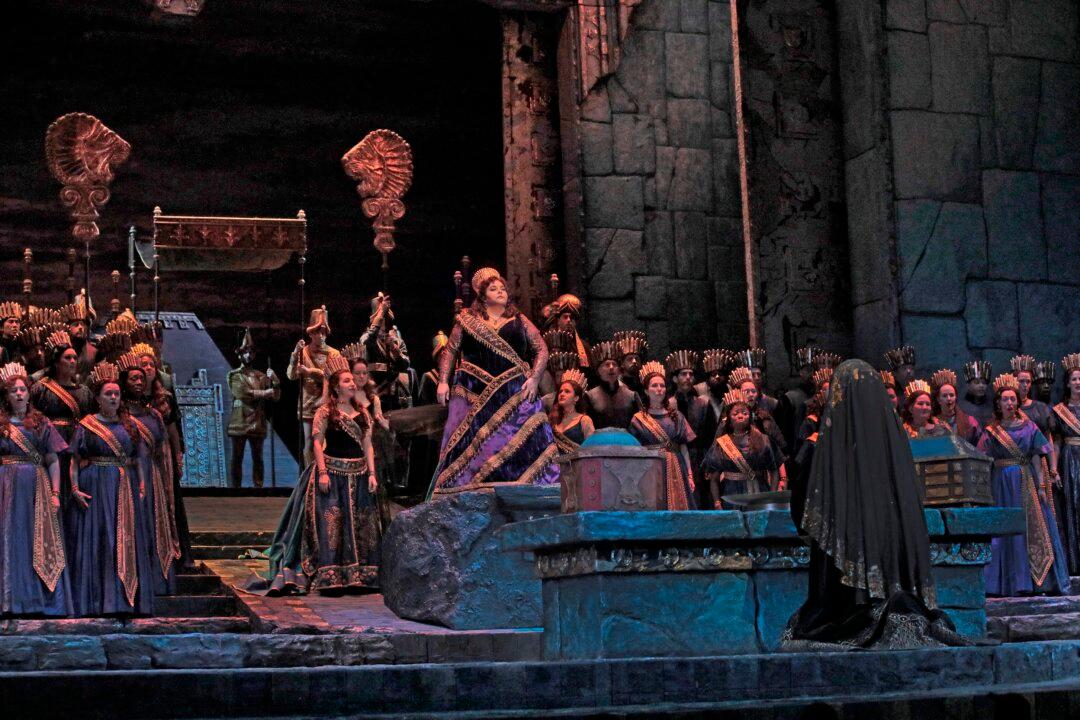NEW YORK—Gioachino Rossini’s 1823 opera “Semiramide” was highly popular in its day, but in the past century, performances have been few and far between. One reason may be that it is difficult to find singers who can handle the demanding bel canto style and the dramatic requirements of this work. The Metropolitan Opera has just brought back the opera for the first time in 25 years with a cast that had the audience breaking into applause for each aria, duet, and ensemble piece before the music even ended.
The Plot
The libretto is based on Voltaire’s play “Semiramis,” about a true-life queen of ancient Babylon (now Iraq). The events in the Italian opera (in which her name is Semiramide) are mostly fabricated, with scenes reminiscent of “Oedipus,” “Hamlet,” and “Macbeth.”The action begins after the assassination of King Nino and the assumption of power by Semiramide, his widow. The heavy of the piece, Prince Assur, wants the throne. Arsace, the commander of the army, is in love with Princess Azema, but then so are Assur and Indian Prince Idreno. Azema goes for the warrior.






